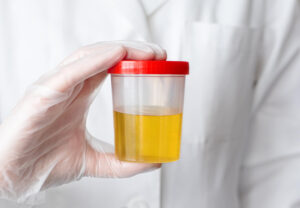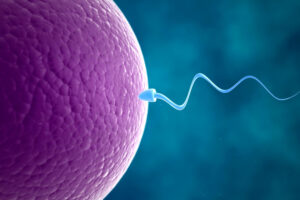When embarking on an IVF journey, understanding how diet and lifestyle factors can influence your treatment outcome is crucial. While IVF success rates in India and globally vary depending on numerous factors, optimising your lifestyle choices can significantly improve your chances of success. This comprehensive guide explores how dietary and lifestyle modifications can enhance your fertility treatment outcomes.
Understanding IVF Success Rates
Before exploring lifestyle changes to potentially improve your chances of success with In Vitro Fertilisation (IVF), it’s crucial to understand the baseline IVF success rates by age. These rates are significantly influenced by several factors, most notably age. It’s important to have realistic expectations and discuss your individual circumstances with your fertility specialist.
Current statistics indicate a clear correlation between age and IVF success:
- Under 35: The most favourable success rates are typically seen in this age group, ranging from 40-50%.
- 35-37: Success rates begin to gradually decline, generally falling between 30-40%.
- 38-40: A more significant drop is observed, with success rates typically between 20-30%.
- Over 40: Success rates are lowest in this age group, ranging from 10-20%.
While age plays a critical role, it’s not the only factor. Other contributing elements include the cause of infertility, the quality of eggs and sperm, embryo quality, and the clinic’s experience. While you cannot change your age, adopting healthy lifestyle habits can positively influence your overall health and potentially optimise your chances of a successful IVF cycle, regardless of which age group you fall into. It’s important to remember that these are average statistics, and individual outcomes can vary. A consultation with a fertility specialist is essential for personalised guidance and assessment.
Dietary Factors That Can Boost IVF Success
Essential Nutrients for Fertility
- Folic Acid and B Vitamins
- Begin supplementation at least three months before treatment
- Include leafy greens, legumes, and fortified cereals in your diet
- Aids in healthy egg development and embryo quality
- Omega-3 Fatty Acids
- Consume oily fish like salmon and mackerel
- Consider plant-based sources like flaxseeds and walnuts
- Helps reduce inflammation and improve egg quality
- Antioxidants
- Include colourful fruits and vegetables
- Add nuts, seeds, and berries to your daily diet
- Protects eggs and sperm from oxidative stress
Foods to Avoid During IVF Treatment
- Processed foods high in trans fats
- Excessive caffeine (limit to 200mg daily)
- Alcohol and sugary beverages
- Raw or undercooked foods that might carry bacterial risks
Lifestyle Modifications for Enhanced Success
Exercise and Physical Activity
- Regular moderate exercise can improve IVF outcomes by:
- Enhancing blood flow to reproductive organs
- Reducing stress and anxiety
- Maintaining a healthy BMI
- Improving overall health and well-being
While regular physical activity is generally beneficial for overall health and can positively influence fertility, it’s crucial to adjust your exercise routine during IVF treatment. High-intensity workouts, such as vigorous running, heavy weightlifting, or strenuous interval training, should be avoided. Opt instead for low-impact, moderate exercise like walking, yoga, swimming, or light cycling. Always consult with your fertility specialist before starting or modifying any exercise programme during your IVF treatment.
Stress Management
- High stress levels can negatively impact IVF success rates. Consider:
- Regular meditation or mindfulness practices
- Gentle yoga specifically designed for fertility
- Professional counselling or support groups
- Adequate sleep and rest
Weight Management
- Maintaining a healthy BMI is crucial for IVF success:
- Overweight: Can affect hormone balance and embryo implantation
- Underweight: May impact egg quality and ovulation
- Ideal BMI range: 18.5-24.9
Environmental Factors to Consider
Beyond diet and lifestyle, your environment also plays a role in fertility health. Minimising exposure to harmful substances and creating a nurturing home environment can contribute positively to your IVF journey. Here’s what to consider:
Reducing Toxin Exposure
- Switch to organic products when possible
- Avoid plastic containers containing BPA
- Use natural cleaning products
- Minimise exposure to environmental pollutants
Creating a Healthy Home Environment
- Ensure good air quality
- Maintain proper humidity levels
- Create a calm and peaceful living space
The Importance of Timing
Timing is key throughout the IVF process. Preparing your body and mind in the months leading up to treatment is just as important as maintaining healthy habits during the treatment cycle itself. Here’s a breakdown of what to focus on during these crucial phases:
Pre-Treatment Period (3-6 months before):
- Dietary changes: Begin implementing recommended dietary adjustments, focusing on nutrient-rich foods to support fertility health.
- Supplements: Start taking doctor-prescribed supplements, following dosage instructions carefully.
- Exercise: Establish and maintain a regular, moderate-intensity exercise routine.
- Stress management: Practice consistent stress reduction techniques, such as mindfulness or meditation.
During Treatment:
- Healthy habits: Maintain consistent healthy habits, including diet, supplements, and stress management.
- Gentle activities: Focus on gentle exercise like walking or swimming, avoiding strenuous workouts.
- Hydration: Stay well-hydrated by drinking plenty of water.
- Rest: Ensure adequate rest and sleep for optimal body function.
Partner’s Role in IVF Success
The male partner’s lifestyle choices are equally important for a successful IVF outcome:
- Diet: Maintain a healthy diet rich in antioxidants, vitamins, and minerals to support sperm health and quality.
- Smoking and alcohol: Avoid smoking and excessive alcohol consumption, as these can negatively impact sperm quality and fertility.
- Exercise: Engage in moderate exercise regularly to maintain a healthy weight and improve overall well-being.
- Stress management: Effectively manage stress levels through relaxation techniques, mindfulness, or other stress-reducing activities.
While IVF success rates depend on various factors, including age and individual health conditions, optimising your diet and lifestyle can significantly improve your chances of success. By following these guidelines and choosing a reputable fertility centre like Boon IVF, you can enhance your fertility journey outcomes. Remember, every small positive change in your lifestyle can contribute to your ultimate goal of having a healthy baby.
Why Choose Boon IVF for Your Fertility Journey
The Boon IVF clinic in Hyderabad, a leading IVF centre in India, takes a comprehensive approach to maximising your chances of success. We combine medical expertise with holistic care, offering personalised, evidence-based treatment plans enhanced by AI. Our integrated approach includes nutrition counselling, specialised fertility yoga, and couples’ counselling. With high success rates, over 1000 successful treatments, and state-of-the-art facilities, we’ve helped over 1000 couples realise their dream of parenthood. What sets us apart is our holistic philosophy, ethical practices, affordable pricing, and warm, welcoming environment, all supported by expert fertility specialists dedicated to personalised care.


